Home & Living
Stem & Vine Helps Patrons Connect to the Cultural Roots of Their Plants and Spirits
At the Mt. Vernon shop, owner Quincy Goldsmith encourages visitors to plant themselves at the bar, learn about the greenery for sale, and linger for some good old-fashioned conversation.
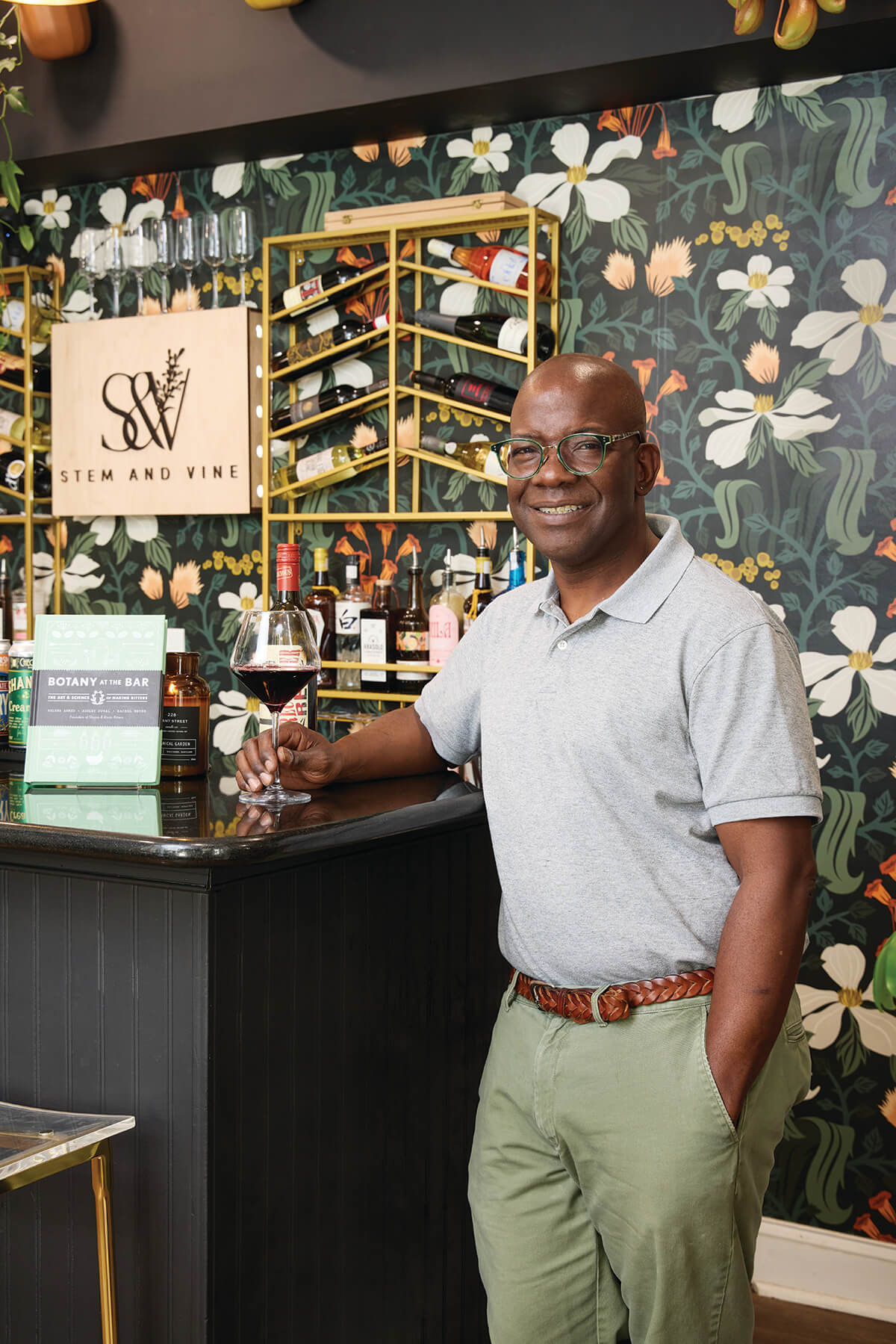
Quincy Goldsmith has lived and worked just about everywhere, thanks to a father who was in the military and, later, because of his own work as an engineer designing steel and aluminum for the Japanese auto industry. And the first thing he always noticed when he flew into any new country—especially when he had his first meal—was the plant life.
“You’re eating different types of plant vegetation and drinking spirits,” says Goldsmith 54. “Many times it’s based on what’s grown in those areas.”
When he retired in November 2018, Goldsmith realized he could combine all the things he loved—plants, cocktails, art, community, and his curiosity about the world—into one business, and Stem & Vine opened its brick-and-mortar in December 2023. He sees a real link between his career as an engineer and what he’s doing now.
“I was working in metals—that’s from the ground—it’s a natural science. And plants are science. They all come out of the ground.”
Goldsmith had been looking for the right space for his plant shop when he heard about Mt. Vernon’s Brown’s Arcade. Back in 1904, architect Henry Brauns had taken a bunch of rowhouses and turned them into the original Brown’s Arcade, a high-end, mixed-use office and retail space that stretched from Charles Street west to Saratoga Street.
That first Brown’s Arcade concept essentially died after WWII, but in 2021, it was brought back to life with a $2.5-million renovation that transformed the buildings once again, updating retail space and adding 15 new apartments. Viva Books opened in May of 2021 and, two years later, much to the surprise of his landlord, Goldsmith decided to take the remaining business spaces so he could also have the interior courtyard and fulfill his vision.
The idea behind Stem & Vine is that it’s “aggregated by different parts of the world—Asia, Australia, Africa, and the Americas,” says Goldsmith. He groups the plants, spirits, and wine from those areas together inside the shop. “We want to tell cultural tales that are botanical.” He says this kind of classification can be eye-opening for some customers, who tend to think their plants merely come from the store and rarely consider their origins.
“We’re connecting spirits with plants, but also adding a cultural component to it. I mean, these plants are all tropical. That means they’re from Black or brown places. This is a way that we can connect with our culture,” he says. “It’s a way to educate—you know that plant you have isn’t from Home Depot—it’s from the Cameroons, it’s from Vietnam, it’s from Mexico.”
Goldsmith points to a bottle of Don Papa rum—“my favorite rum is from the Philippines. It’s a little odd, right? But if you think about it, who colonized the Philippines?” (The Philippines was part of the Spanish Empire for over 300 years; Spanish settlers first arrived in the 1500s.) He’s offering merch with a big scoop of history.
“To say we are ‘just a plant shop’ disregards so much else.”
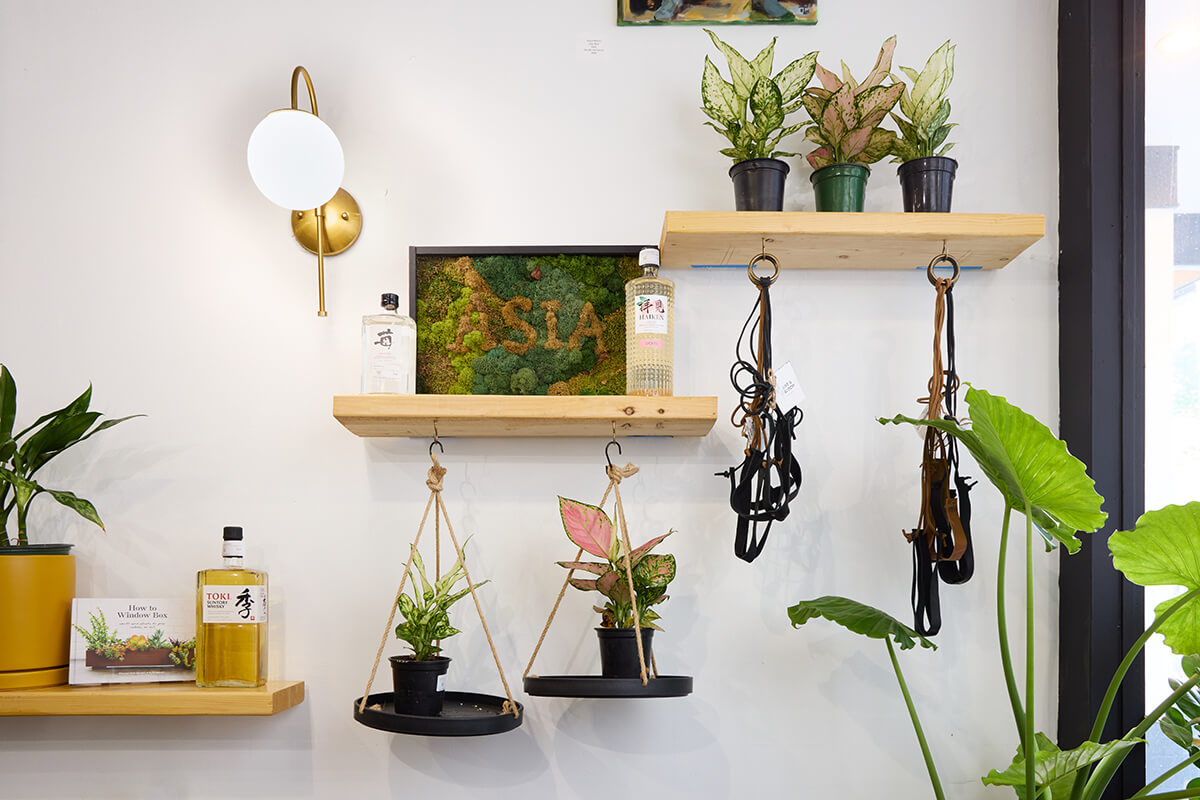
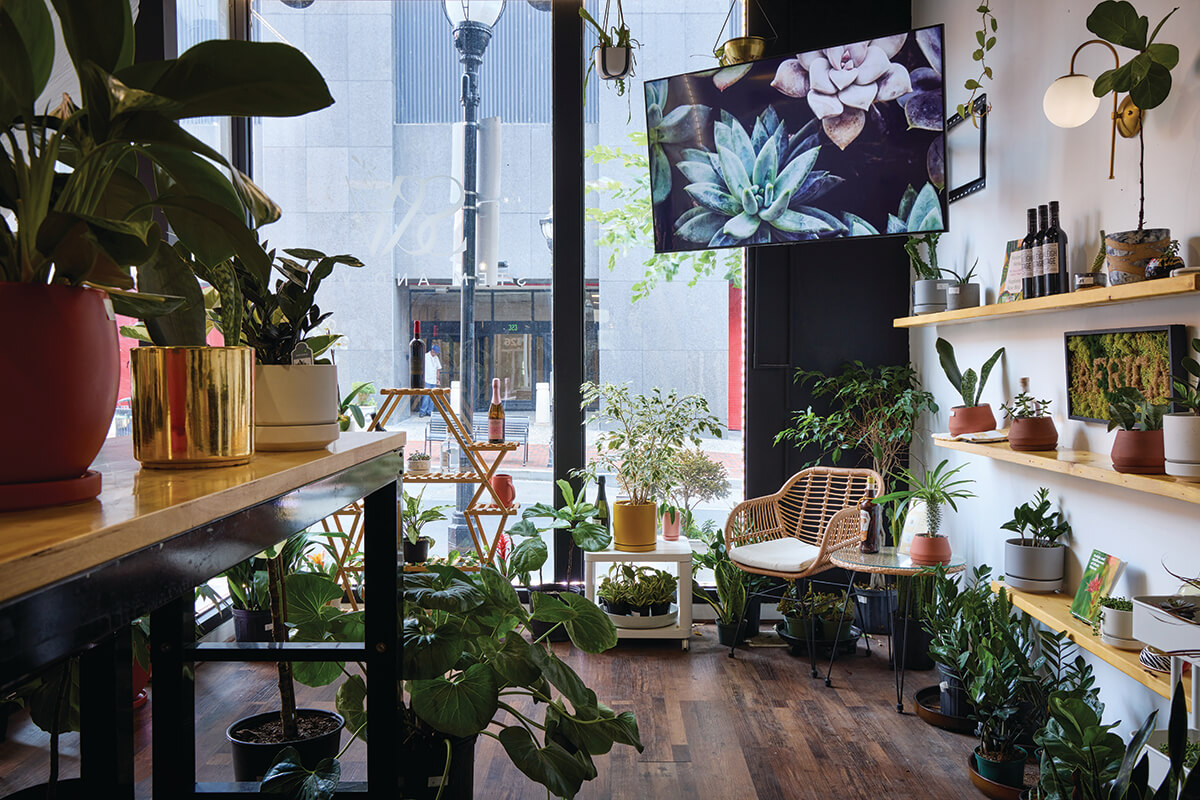
And unlike other plant shops where you shop and leave, Stem & Vine encourages the linger. There is a full bar with beverage director K. Starks on hand. The many weekly programs—Goldsmith has a dedicated classroom—include ceramic pot making, terrarium building, spirit tasting, and herbal skincare. The art on the wall, all plant-inspired, is for sale and curated by Black Art Today, a nonprofit out of Upper Marlboro. The shelves are also filled with items from local businesses. “There are about 50 women-owned businesses that we support,” says Goldsmith.
Goldsmith is also one of the city’s biggest champions, sitting on boards at South Baltimore Gateway Partnership, the Baltimore Museum of Industry, Southwest Baltimore Charter School, and the CURE Scholars Program at University of Maryland, Baltimore.
“There are so many positive things going on,” he says. “I’m very civically involved in the city. And there are wonderful things being done by incredible people, but it’s not out there.”
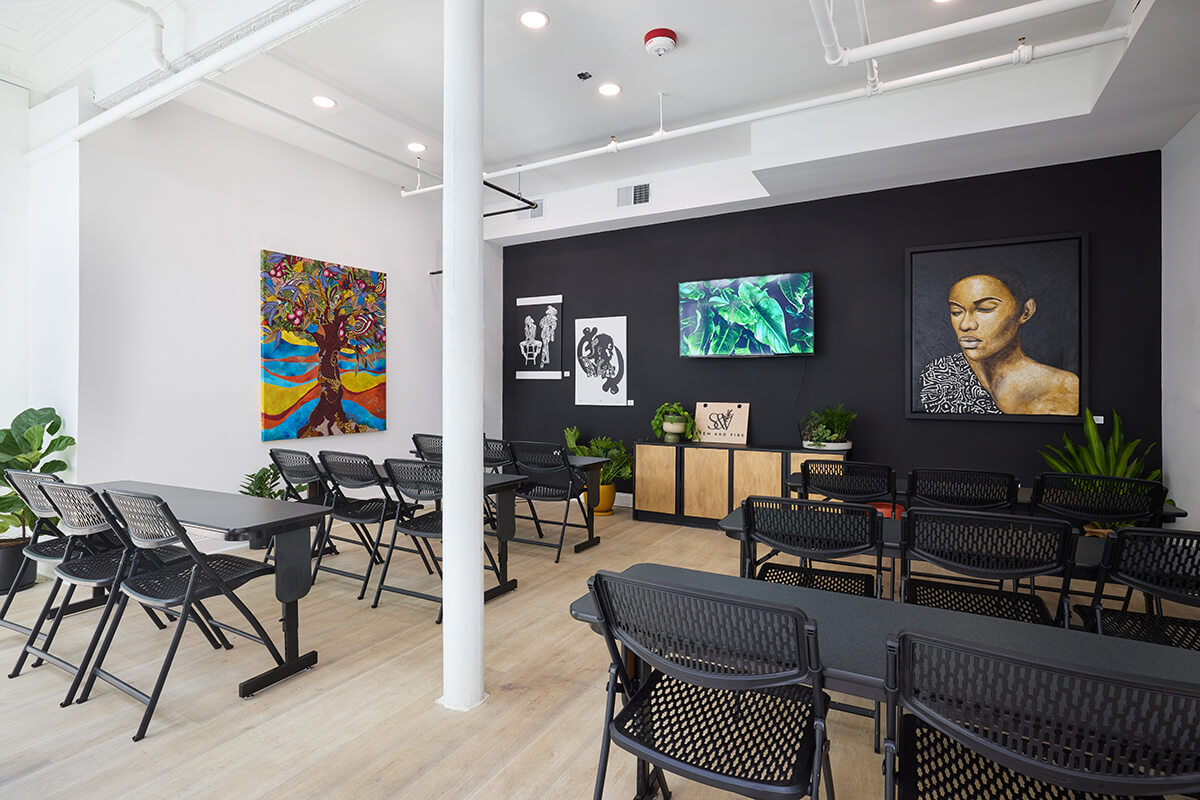
He hopes Stem & Vine is the kind of place, with its “nurturing, positive, creative atmosphere,” that attracts others who want positive change in the city.
“I’m very glad that we’re not in Towson. I’m glad we’re in this area, where it’s the fastest growing neighborhood in the city. There are tons of people here from all over the world. Hopkins students who can come and have a safe space. Our customers are 80-percent women in a city that’s 35-percent women of color.”
He knows it’s unusual to use the term “safe space” when it comes to a plant shop, but he sees his shop as a kind of cultural therapy. “You get to enjoy this art and see Baltimore in a way that hasn’t been seen by you or others before; we want to be something different.”
He doesn’t allow teleworking in his space, despite all the tables, just good old-fashioned conversations. “I have a minor in psychology and probably use that way more than the engineering,” he laughs. And now he can add horticulturist to his skill set.
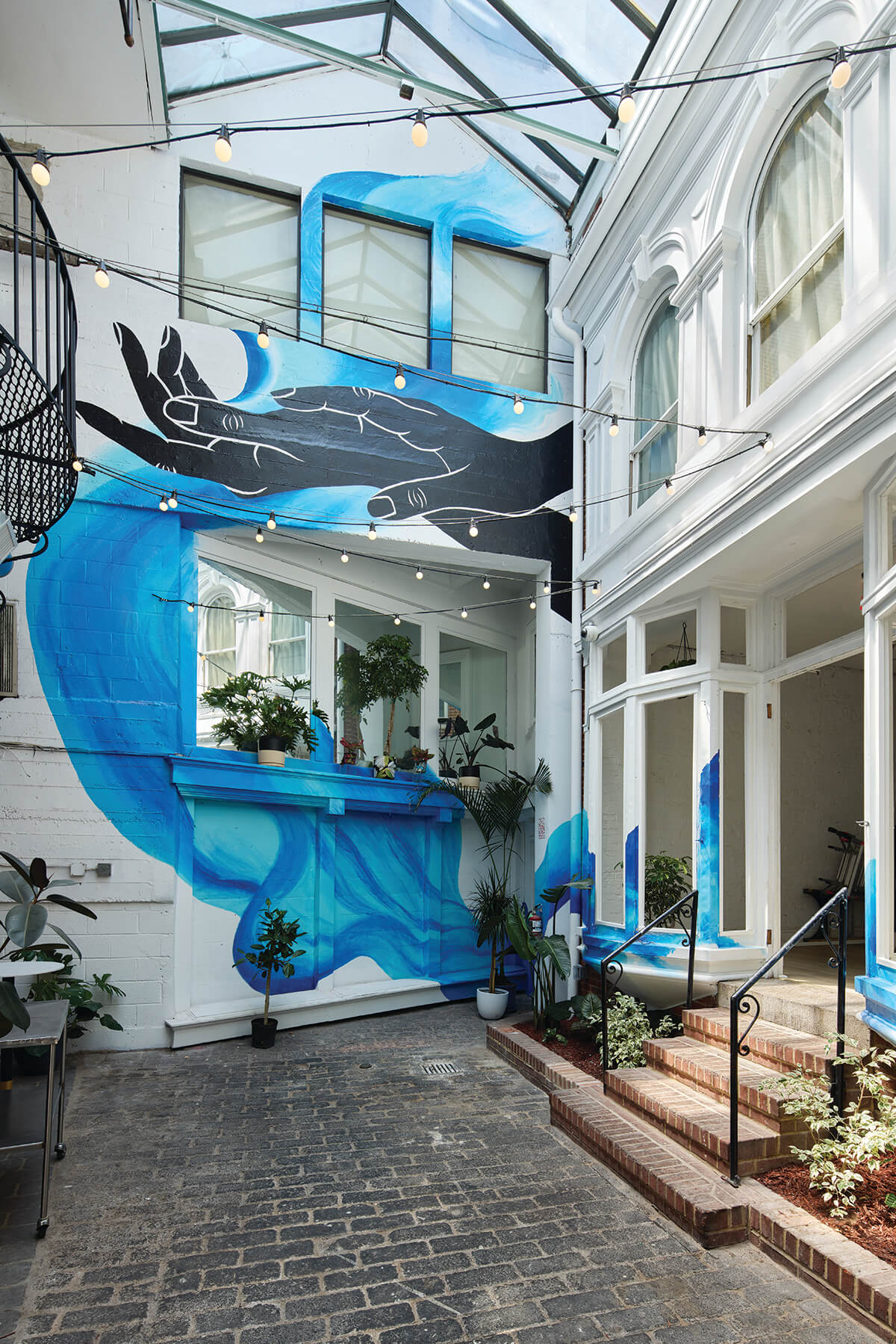
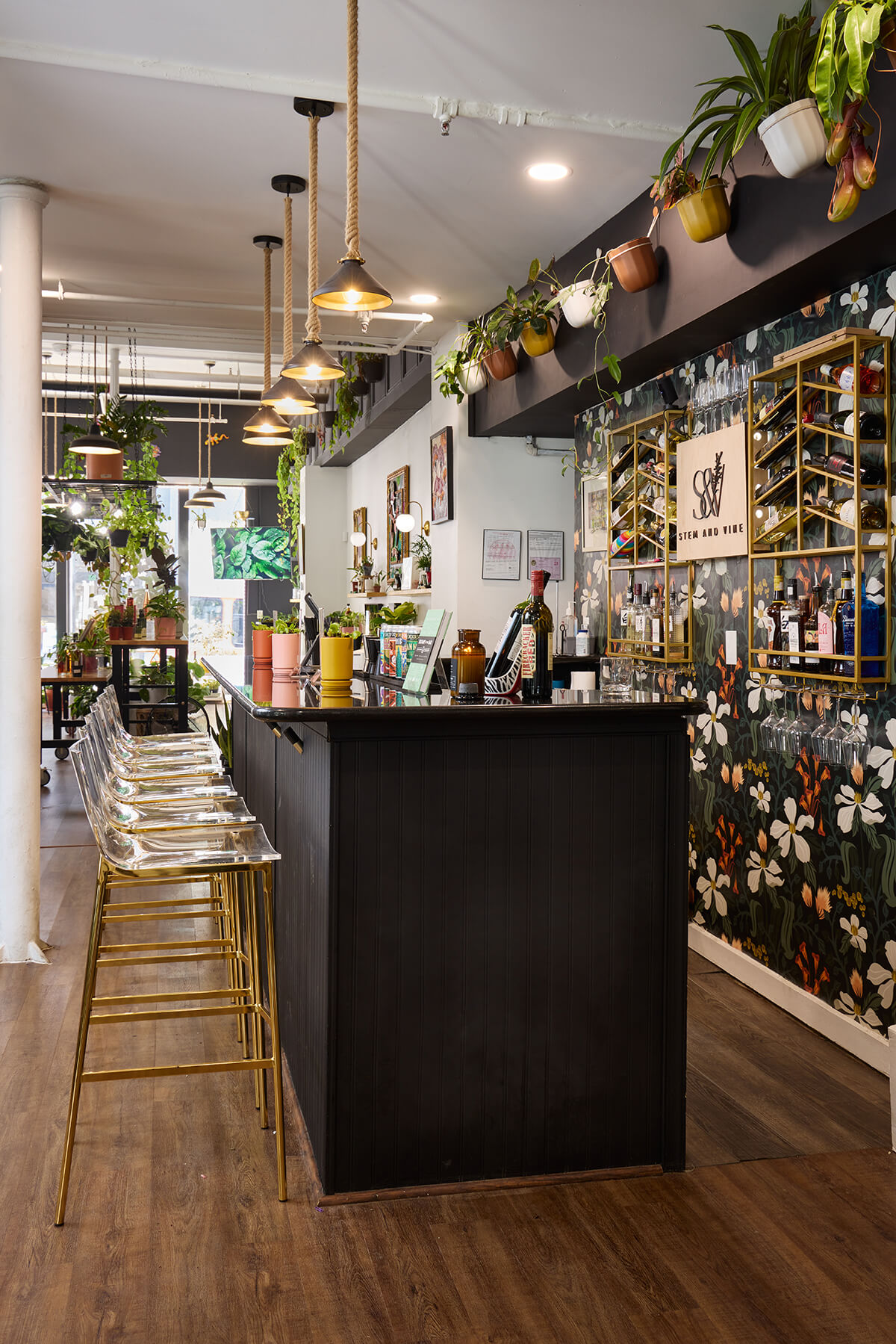
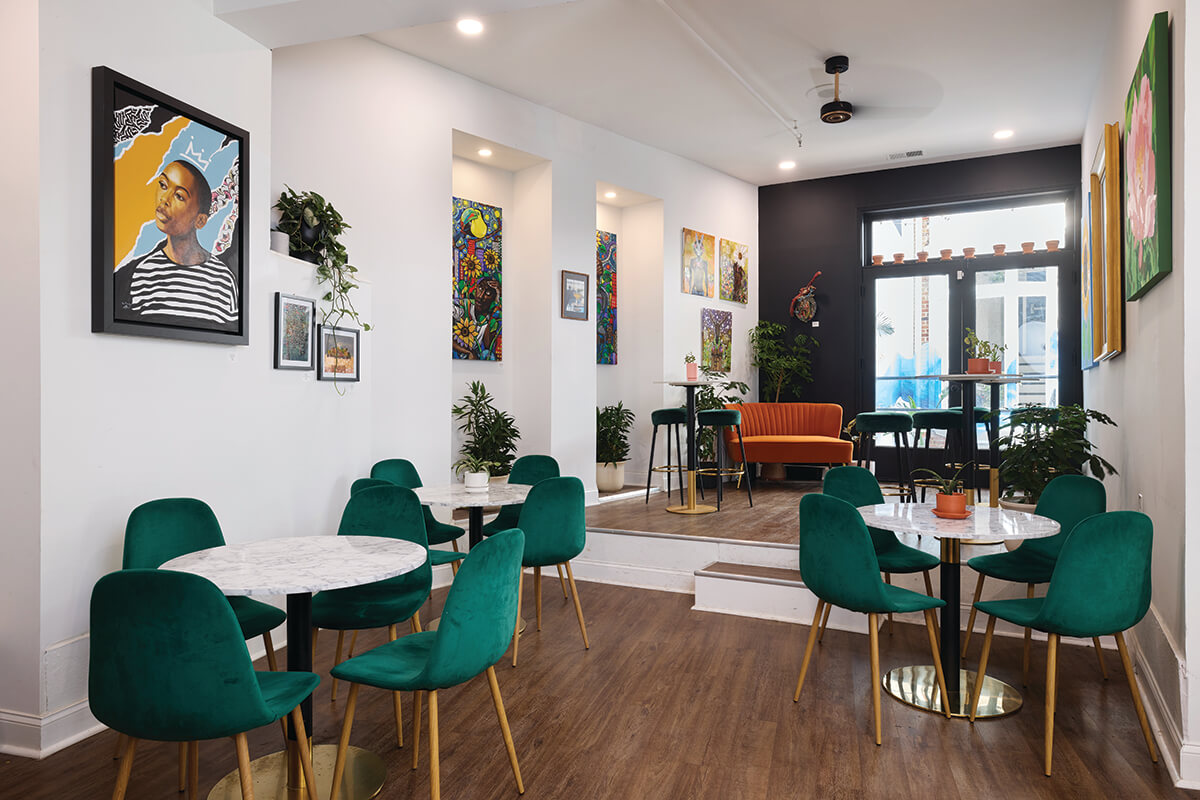
When customers ask for recommendations for a starter plant, Goldsmith might suggest a hearty snake plant, but he also has a thing for “big plants.” They are very forgiving, he says. The Union Square home he shares with his wife, Kendrea Clark Goldsmith, is filled with three 10-foot-plus ficus trees. (One made the cover of the BmoreArt “More Is More” issue.)
He doesn’t believe buying plants should happen online. “I call this experiential retail. I want you to come here and see and enjoy this, and make a decision, and then go home. As opposed to just the instant gratification of pushing a button and opening your door and there it is, right?”
The meet and greet between plant and owner is part of the process, he stresses. “I want folks to slow down and learn that these plants are just teachers who say, ‘treat me right, be consistent, do positive things, and then I’m going to reward you with a leaf every now and then.’”
Goldsmith treads lightly when it comes to being downright critical of the “garden industry,” but says he believes they have “done a very, very poor job of recognizing their minority audiences” and teaching about plant pedigree. He knows he can’t reach everyone, but hopes his shop, nestled between Mick O’Shea’s Irish Pub and Lumbini, an Indian and Nepalese restaurant, can bring a bit of clarity without being overly preachy or pigeonholing himself.
“My target audience is 38-year-old Black women professionals in Baltimore,” he says. “But this is for everybody. I don’t want this to be the ‘Black plant shop.’ That’s definitely not what I want. I want everyone to come here and be comfortable and enjoy everyone. And they are,” he stresses.
“It’s funny—three times a day people come in and ask, ‘Are the plants for sale?’ Like, okay, it’s a lot of decoration otherwise. ‘Yes, they’re for sale! Please buy them and take them home.’ You know, everybody’s like, ‘Oh, I want to live here.’ No, you can’t live here. But you can take what’s here home with you and make your home look like this.”
He’s joking, but he has struggled a bit to clarify the store’s hybrid identity. Still, Goldsmith sees that as motivation, not a deterrent.
When he was putting together his original business plan, he kept being told, “Don’t try to do too much, focus on one thing, be the best at that one thing, don’t confuse the audience,” he says. “And I’m like, you know what? I hear you. But this all ties together. There’s nothing that I’m doing that’s an outlier. This all works, even though it’s a lot. I guess there’s no name for it. But maybe we can come up with one.”